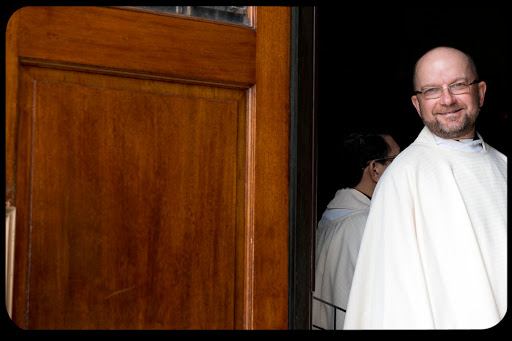Should the Catholic Church ordain married men to the priesthood? Yes — but not now.
Why not now? Because such a move would be correctly perceived as a concession to the sexual values (or should I say disvalues?) of the present secular age. If in this instance the Church were to accept, or were perceived to accept, the “wisdom” of the world, how could it logically refuse to accept the world’s wisdom in a hundred other instances? Our highly secularized modern world, remember, is widely and deeply opposed to the beliefs and values of Catholicism.
It’s not as if the modern world says, “Catholicism is right on everything except its attitude toward sex.” No, the world says, “Catholicism is wrong on almost everything, its attitude toward sex being one of its most conspicuous lunacies.” Let the Church give way at one point, and it will have to give way at a hundred points.
When early Protestantism abolished the requirement of priestly (or ministerial) celibacy, it did so as a concession to human nature, but not as a concession to the sexually permissive values of the age. For the early 15th century was not a sexually permissive age, at least not outside the higher classes in Renaissance Italy. In trans-Alpine Europe it was, if anything, just the opposite. Hitherto there had existed an old and widespread belief that a life of holiness could be led only by persons vowed to celibacy, that is, priests, monks, and nuns. Early Protestantism, by contrast, believed that even ordinary laypersons could achieve — or rather, could receive the heavenly gift of — a life of sanctity. Therefore the pursuit of holiness did not need to be accompanied by a life of celibacy.
Nonetheless Protestantism was a serious deviation from the ancient Christian sexual ideal, for that ideal was an ideal of celibate chastity. We can see this in the examples of St. Paul and Jesus himself. (If you wish to reject the idea that the example of Jesus showed that the celibate life is the ideal life, you will have to argue either that Jesus was secretly married or that he intended to take a wife a few years later, after he had given up his itinerant preaching and settled down, perhaps opening a carpentry shop.) We can also see it in Jesus’s comment that in Heaven they neither marry nor are given in marriage. For if heaven is a place of complete holiness, then those who wish to begin living a holy life here on earth should live, as much as possible, a Heaven-like life — that is, a life of celibate chastity.
It is true, of course, that Catholicism always had another sexual ideal, that of marital chastity. But this was a secondary ideal. The primary ideal was always the life of celibate chastity. It is a great historical and theological fact — an extremely unpleasant fact, it must be conceded, for many Catholics, and an utterly absurd fact for secularists — that the virtue of chastity plays an enormous role in Catholic system of religion. The Catholic virtue of chastity is not the virtue of sexual moderation that we find in the ethics of an ancient philosopher like Aristotle. No, the Catholic virtue goes much beyond that; it is a virtue of heroic chastity or hyper-chastity.
And so when early Protestantism renounced the ideal of celibacy, allowing priests/ministers to marry and closing down all convents and monasteries, it departed in a very significant way from the ancient Christian ideal. Yet it wasn’t caving in to a secular culture of sexual freedom. Not at all. Protestantism retained the old (secondary) ideal of marital chastity and premarital virginity. However, if present-day Catholicism were to allow married men to become priests, this (as noted above) would be seen, and seen correctly, as caving in to our culture of sexual freedom.
But what about the Greek Church and other Orthodox churches? They have allowed married men to be priests while at the same time upholding the higher ideal of celibacy; and they have done this in two ways: by allowing only celibate men to become bishops and by maintaining a strong tradition of monastic celibacy. Can’t we Catholics do the same — some priests married, some priests celibate, all bishops celibate, and all members of religious orders celibate?
Yes, but we’ll have to wait till a time when the change can be done safely — and that time may not arrive for another few centuries. What’s more, a change of this kind will have to be made gradually, not suddenly. Think of the relatively small changes that were made in the era of Vatican II, e.g., the vernacular Mass and the altar turned around; and remember how disturbing these minor changes were to the faith of millions of Catholic believers. The sudden and dramatic abolition of the priesthood celibacy requirement would in all likelihood be even more disturbing.
If the change comes, my guess is that it will come in a long series of small steps, steps allowing for special exceptions to the celibacy requirement, like the special exception now given to married Anglican priests who convert to Catholicism. Later special exceptions may be given to Methodists or Presbyterian or Baptist ministers or even to Jewish rabbis. And then special exceptions can be given to certain Catholics, e.g., permanent deacons or married men who can convince their bishops that they clearly have a “call” to the priesthood. And finally, after all these special exceptions have gradually — very, very gradually — accumulated, Rome can announce, in a quite anti-climactic way, that the requirement of priestly celibacy is being abolished.
My guess is that all this will be accomplished by about the year AD 3000.
David Carlin, a professor of sociology and philosophy at the Community College of Rhode Island at Newport, is the author of My Dear Bishops…: An Open Letter to the American Catholic Bishops.

